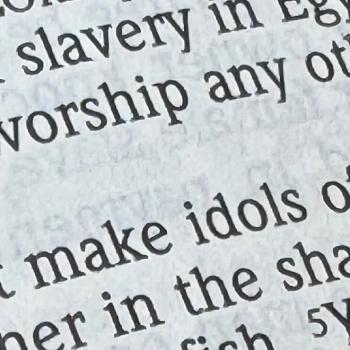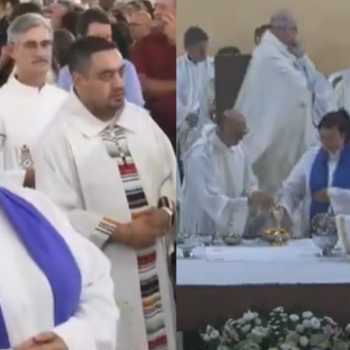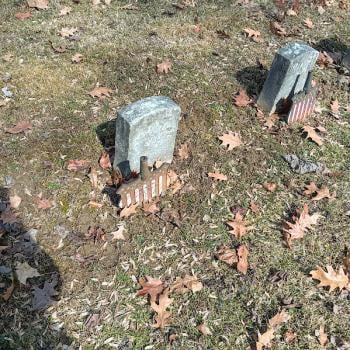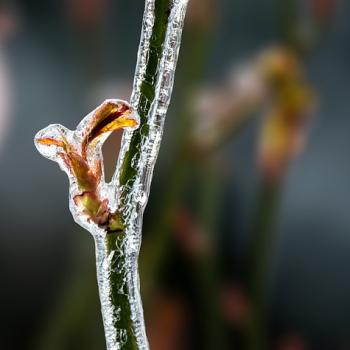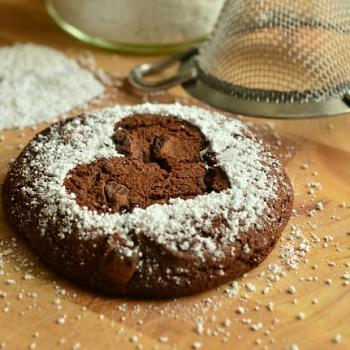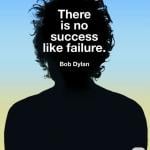
I haven’t been in the best shape, the past few days. I can’t imagine I’m alone.
They’re telling me the United States’s democracy is finished and the tariffs will drive inflation through the roof. Millions of innocent migrants, like those people in Springfield I tried to speak up for, are in mortal danger. Schools are going to be in trouble. Ukraine and Gaza are doomed. There won’t be any effort to mitigate climate change before it’s too late. We’re finished. I hope it’s not true, but I can’t stop any of it if it is. And I’m terrified.
I’m so selfish, all I can think of is that I just wanted to rest. I was finally learning to be happy as I turned forty, and now I have to fight again. And I hate myself for being so selfish.
I had the idea of expanding the garden, so that I could at least give out more tomatoes and squash to the neighbors if the food prices soared next year. That was the only way I could think of to be a help. I always want to be a help. That was what I tried to do during the pandemic, when food prices soared the first time, but then the stalking neighbor in the haunted house vandalized the garden and blamed it on a groundhog. I couldn’t fight her any more than I could fight fascism. I am helpless.
For days I’ve been thinking about the garden but not accomplishing anything, stimming by saying the names of fancy heirloom seeds to myself: Mrs. Burns lemon basil. Dark opal basil. Corsican basil. Bronze mingonette.
I found the grape vine that Jimmy’s boy had brought me weeks ago. It was still in its box by the door, a bare root cutting, just a stick.
I didn’t know if it was still alive for me to plant, or if I killed it leaving it by the door. I’d never planted a grape vine before. I hardly ever plant perennials. Why would I? I don’t own the house I live in. I rent it, and it’s not in good shape. Next year, if we finally leave this place, they may belong to somebody else.
I started looking up how to plant a grape vine anyway: if it’s still possible to plant it after keeping it for so long, and whether it could overwinter in Zone Six. The answer to these questions is “I’m still not sure” and “No, not usually. but with the eerie mild winters we’ve been having now, might as well try.” You have to grow a grape vine in a sunny place, and the landlord’s assistant never came to cut those trees around the porch, so I’m running out of sunny places. You have to grow grapes in chalky soil without fertilizer, and I don’t know how to go about getting the soil ready.
I was too tired to dig a hole for the grape vine anyway. I just went outside, telling myself I was plotting the space.
I sat on the concrete step, worrying. Praying, I guess, but not well.
I am the true vine, and my Father is the gardener. He cuts off every branch in me that bears no fruit, while every branch that does bear fruit he prunes so that it will be even more fruitful.
Not a very comforting thought, when life seems hopeless and the only branch you’ve got is a stick.
The garden isn’t comforting either. The sunflowers are all but dead: the very last one is headless, but it sprouted three raggedy flowers on the sides of its green stalk, and they are still blooming. The rose I planted in May is almost done for the year, but it gave me two more blossoms, in two colors. One is that ugly cool fuchsia-red that the photo on the rose’s package showed me, and the other is a rich dark red, almost burgundy. I don’t know why it ended up giving me two colors of rose. I don’t know a thing about growing roses anymore than I know about growing grapes.
My grandfather, now, he knew about growing roses. He knew about growing grapes. He was the smartest man in the world: an internist at a hospital in a small town on the OTHER side of Northern Appalachia, and also a brilliant carpenter, and a spectacular gardener. His house was an old fashioned Mennonite farmhouse on a triple lot that I thought was a real farm. The side of the yard behind the house was in the shade of great big trees, and it was filled with hostas and ferns and other plants that like the shade. On the other side of the garage there was an orchard with peaches and apples, and a huge vegetable patch with the garden shed in the back, a sea of day lilies and roses and every other showy flower, and a sandbox and a swing set for the grandchildren to play in. He and my grandmother built or grew every part of it themselves. They were brilliant.
In between the gardens, behind the two-car garage, there was a tunnel of yellow grapes.
He trellised the grape vines over a wooden framework, from one side of the garage to the other, so they made a living cave. I used to sneak between the shade garden and the great big sunny garden by tiptoeing down the grape alley. I pretended that I was a prisoner, escaping from the Kingdom of Darkness into the Kingdom of Light through a secret passage opened by a kind sorcerer.
My grandfather would have told me what to do to grow my own grape vine. He would have somehow brought that dry stick to life for me, and made it give me grapes.
I’m estranged from my family now, and I will never see the garden again.
I know that my grandfather wasn’t the best of men. I love him so, so much, and I always will. But my mother told me all of those stories of growing up in the great big Mennonite-built farmhouse on the magical triple lot, with no parental supervision whatsoever.
My grandmother, who is a good and loving woman, had what I now know is an obvious case of female phenotype autism; I got it from her. She also had relentless post-partum depression, and I got that too. Every time she got pregnant, which she did at least nine times, she was happy and busy. Every time she gave birth, she had a horrendous struggle with post-partum depression, which lasted until she got pregnant again. She went through that darkness completely unmedicated and unhelped. What help could there possibly be for a woman with female phenotype autism and post partum depression, in the sixties and seventies, when post partum depression wasn’t mentioned in the DSM until the nineties and female phenotype autism is an even younger concept? She sat up in bed and cried, for months.
My mother said that my grandfather didn’t know what to do during those times, so he’d take on extra hours working at the hospital to get away, so he was almost never home. Or else he’d take time off from work to take my grandmother on a long vacation, without the children, so she could rest. The children didn’t see him. They barely saw their mother. They were left with the abusive housekeeper–and then, after my mother said whatever it was she said to make the abusive housekeeper quit, they learned to cook and clean and take care of each other. And when I look at the fractured relationship I have with my mother and aunts– the bitterness and name calling, the emotional abuse over my health and my weight and my autism, the constant insistence that their children are spoiled brats who don’t know how well they have it– I understand.
But if you’d met my grandfather, you’d have understood why I love him so much, and you’d have forgiven him his faults and loved him too. And I think he really did love me.
I guess, when I put it that way, my grandfather sounds like God the Father– or, rather, my grandfather sounds the way God the Father seems to me right now. Omniscient. Omnipotent. All-loving. All-lovable. Amazing. Laudable. Neglectful. Responsible for the whole mess. Gone, most of the time. Gone now.
I’ve been expelled from the garden and I’ll never see it again.
But I can try and make my own, and plant the dead stick.
Life is terrible, but we fight on.
Maybe I’ll plant it today.
Mary Pezzulo is the author of Meditations on the Way of the Cross, The Sorrows and Joys of Mary, and Stumbling into Grace: How We Meet God in Tiny Works of Mercy.




